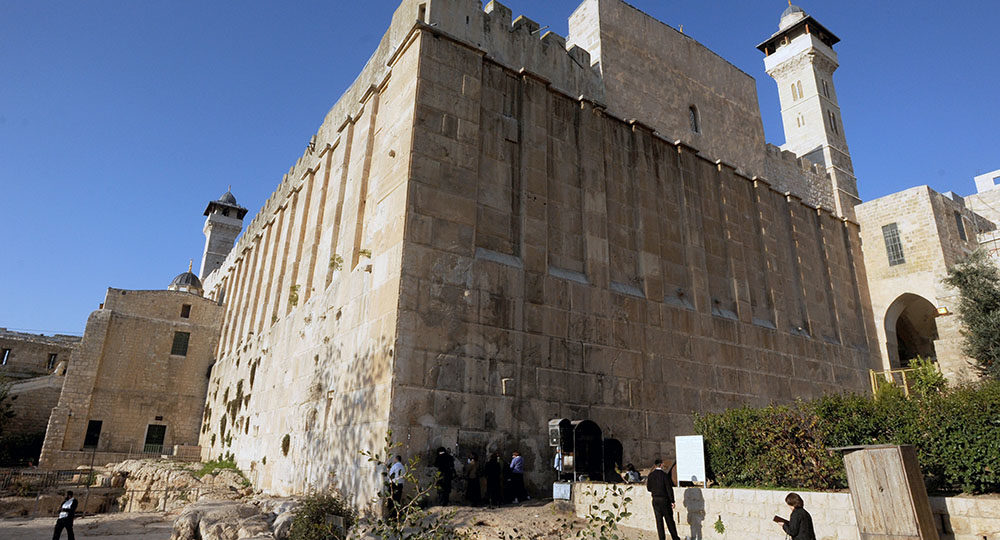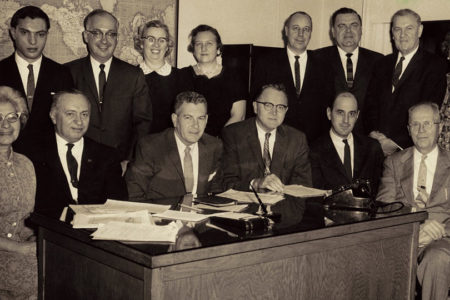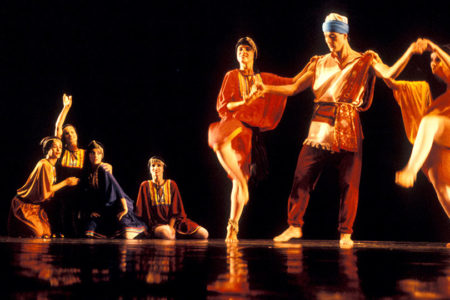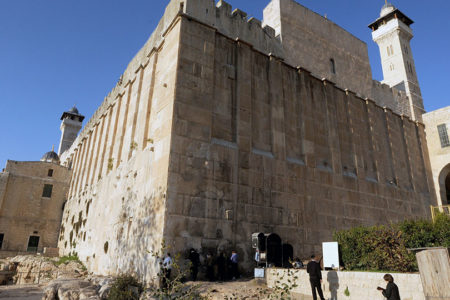Religion and the 60th Anniversary of the State of Israel
The land of Israel is synonymous with religion and spiritual activity. The Orthodox Jews believe it was, and still is, the location of the Garden of Eden where the creation of Adam took place—an event Jewish people celebrate every year on Rosh Hashanah, the Feast of Trumpets, which is also the Jewish New Year.
To Christians, the land of Israel helps bring into focus the person and ministry of Jesus Christ. He was born there, gave His life to redeem mankind there, and will return there to dwell among His people as He rules and reigns as King of kings and Lord of lords in this Promised Land.
Even for non-Jews and non-Christians, the land holds a great interest and strong attraction that drives people of all backgrounds into its mystique of holiness as they hear of the events unfolding there.
Israel is the focus of many world leaders, and it has shipwrecked many ambitious leaders who have believed they could influence its destiny.
As this unique nation of God celebrates its 60th anniversary as a modern state, it is moving closer to spirituality.
Jews in Israel
A recent survey by the Israel Democratic Institute found religious growth and secular decline among Israelis. The percentage of Jewish people who describe themselves as secular has dropped sharply over the past 30 years, and the religious and traditional percentage has risen. Jewish people in the State of Israel are clearly moving toward religion and spiritual thinking.
Religious Jews, the ultra-Orthodox in particular, are moving toward the biblical scenarios foretold by the ancient Jewish prophets down through the centuries. A perfect example is the ultra-Orthodox migration into the areas of Judea and Samaria to establish communities where they can live their lifestyle unhindered. The population there is growing twice as fast as in the rest of the country, and the ultra-Orthodox are responsible for approximately half that annual growth.
This migration into Judea and Samaria (called the West Bank by the news media) is taking place despite the Israeli government’s threat to withdraw from these biblical lands in hopes of making peace with the Palestinians.
Almost daily, people are moving into this area. According to the latest figures released by the Israeli Interior Ministry, 268,379 Israelis were living in the 126 Jewish communities in Judea and Samaria at the close of 2006, indicating a growth rate of more than twice that of the previous year. Figures for 2007 are not in yet.
When Israel dismantled its communities and evacuated the Gaza Strip in August 2005, former Prime Minister Ariel Sharon claimed Jewish settlers had a “Messianic complex.” His statement does indeed help us understand what has been transpiring. An ever-increasing number of Israelis have become intent on retaining the land they believe God has given them.
Many of those preparing to build the next Jewish Temple feel a close connection not only to the ancient Temple that once stood on the Temple Mount in Jerusalem, but to the land of Israel as well. Temple practices always focused on the land that God has given the Jewish people.
A special ceremony that took place on Hanukkah reveals that we are moving ever closer to the re-establishment of Temple worship. Personnel from the Temple Institute in Jerusalem relocated the menorah, the seven-branched candelabra that goes in the Holy Place of the Temple, to the Temple Mount area. Temple Institute leaders called the move symbolic to let the world know that a Temple will indeed be erected on the Temple Mount in Jerusalem in the near future. The menorah is now positioned to be moved into a new Temple.
The Temple Institute has also trained priests and constructed all the implements required for worship and sacrifice at a future third Temple.
Regular walking tours on the Temple Mount encourage Jewish people to return to their spiritual foundations and religious practices.
Recently a report has circulated of a desire to build a synagogue on the Temple Mount, which would at least give the religious Jews a presence on this most sacred piece of real estate in all of creation.
The Temple Mount, Mount Moriah, was actually purchased by King David some 3,000 years ago. He paid cash (“600 shekels of gold by weight”) for this land to Ornan the Jebusite (1 Chr. 21:18–30).
Christians in Israel
At the same time, a growing number of Jewish people are becoming believers in Jesus. Often called Messianic Jews, they seem to have acquired a desire to share the love of the Messiah with many of their loved ones.
The body of Christ is growing almost daily. New churches are springing up. Jewish believers are forming congregations and teaching their members to carry out God’s directives for the local church.
However, as Jewish interest in Jesus grows, anti-Christian activities increase almost as quickly. Ironically, a popular organization that collects millions of dollars from American Christians each year is fighting the spread of the gospel. It reportedly helps fund the fight against introducing new immigrants to the Messiah, resulting in attacks on Christian churches in certain parts of Israel.
Meanwhile, Palestinian Christians—true, born-again, Bible-believing people—desire to see their loved ones come to Christ as well. These believers endure persecution, and some are even being killed.
The Palestinian Christians are a forgotten people, caught between the Jewish government of Israel and the militant Muslims among their own people. Prayer is needed indeed for these truly born-again Christians who are endeavoring to follow the command God gave them.
Muslims in Israel
Without a doubt, the Islamic residents of the Jewish state have intensified their actions to stop the spread of Christianity and the influence that the nation of Israel will have upon the world.
Islamic fictional literature for the last decade has focused on the city of Jerusalem and its importance in the end-times as it relates to the Islamic faith.
Even though the Qur’an never mentions Jerusalem—nor has Jerusalem ever been a capital city in the Islamic world—Muslims now have a fanatical interest in the city where Jehovah said He would put His name. Muslim tradition has it that Muhammad touched off from the “foundation stone” underneath the Dome of the Rock to go up into the seventh heaven.
Muslims have systematically been destroying the proof of a Jewish presence on the Temple Mount. Their efforts not only have geopolitical overtones but religious ones as well because the Jewish connection to the Temple Mount is more spiritual than political.
Control of the Temple Mount has become a major focus in the “peace process” between Israel and the Palestinian Authority. A number of scenarios not only would redivide Jerusalem as part of a two-state solution, but also would yield control of the Old City and the Temple Mount to the Palestinians who claim it should become the capital of a future Palestinian state.
Islam’s fictional literature and religious textbooks call for a coming conflict that will take place in Israel, focused on the city of Jerusalem, with intense focus on the Temple Mount itself.
The Islamic nations of the world are forming alliances, based on religious philosophy, to join together and destroy the Jewish state as it moves into its 60th anniversary.
The End-Times
The different religions in Israel have played a key role in history from the beginning of time. As Israel turns 60, there seems to be strong evidence that something unique and monumental is about to happen.
God is setting the stage for the end-times scenario that can be found in Bible prophecy. As we look at the impact of religion and spiritual activity on the State of Israel, the city of Jerusalem, and the Temple Mount itself during the 60th anniversary of this modern Jewish state, we can only cast our eyes toward the heavens and await the shout from Jesus to call us up to be with Him at the Rapture of the church.







